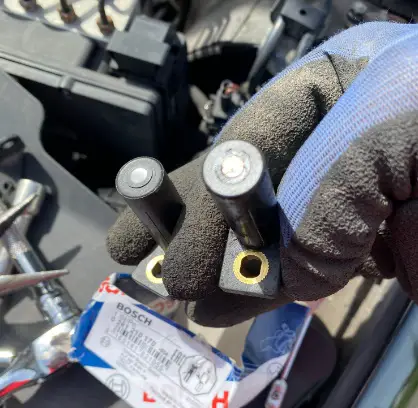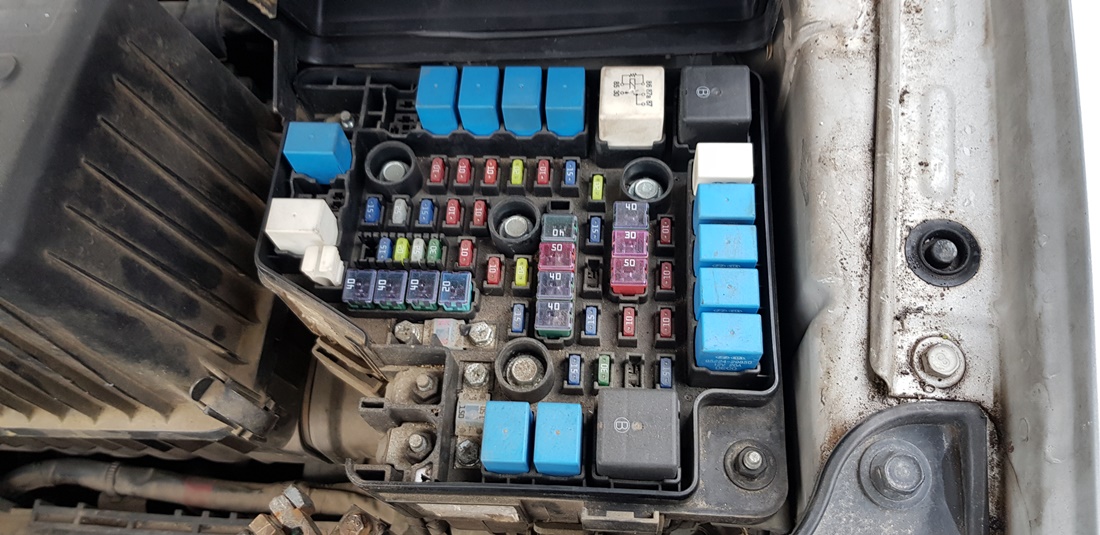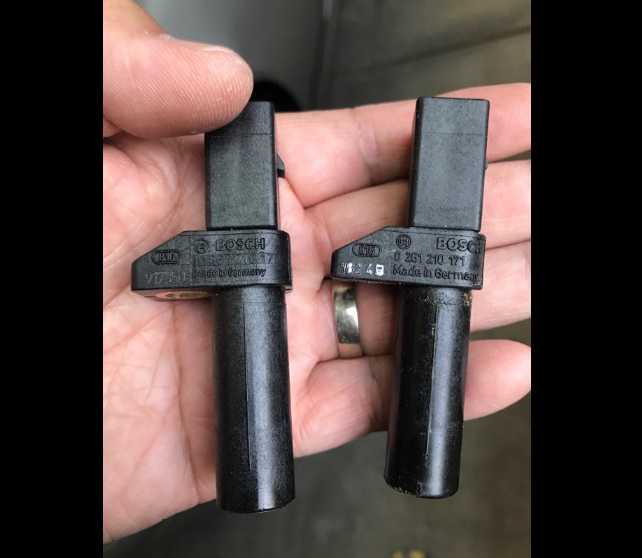If you hear a ticking, tapping, or clicking noise coming from the engine, that could be a sign that your lifters are bad or have collapsed.
You shouldn’t ignore any unusual noises coming from the engine. But, if you hear a ticking noise coming from the lifters, the question is: How long can you drive with bad lifters?
I was intrigued by this question and so I did some research. This is what I found out.
- Key Takeaway
- What Are Hydraulic Lifters In Cars
- How Long Can You Drive With Bad Lifters?
- How Hydraulic Lifters Work
- Signs of a Bad Hydraulic Lifters
- What Causes Lifters To Go Bad
- How to Clean and Quiet Noisy Lifters and Noisy Hydraulic Lash Adjusters
- Is It Safe To Drive With Noisy Lifters?
- Is a Bad Lifter a Serious Problem?
- FAQs
- Q: What are lifters?
- Q: What are the symptoms of a bad lifter?
- Q: Can you drive with bad lifters?
- Q: How much does it cost to replace lifters?
- Q: What causes lifter failure?
- Q: Can a bad lifter cause engine damage?
- Q: What should I do if I have a bad lifter?
- Q: What is the role of lifters in the engine?
- Q: How do hydraulic lifters work?
- In Conclusion
Key Takeaway
- Hydraulic lifters in cars are components that automatically adjust the clearance between the camshaft and valves, ensuring smooth engine operation.
- You can drive with bad lifters for a maximum of 80-100 miles before prompt repair is recommended.
- Signs of a bad hydraulic lifter include excessive engine noise, misfiring, decreased fuel economy, and illuminated check engine light.
What Are Hydraulic Lifters In Cars

Hydraulic lifters, also known as hydraulic valve lifters or hydraulic tappets, are components found in the engine of a car.
They play a crucial role in the operation of the engine’s valvetrain. Hydraulic lifters are designed to maintain proper valve lash or clearance between the camshaft and the valves.
They use hydraulic pressure to automatically adjust the clearance, compensating for any wear or thermal expansion that may occur.
This ensures consistent performance and reduces noise and vibration. Hydraulic lifters are commonly found in modern engines and contribute to smoother operation and improved engine efficiency.
How Long Can You Drive With Bad Lifters?

You can drive your vehicle with bad lifters for a maximum of 80-100 miles, but it is not advised to ignore the problem, and prompt repair is recommended.
When a lifter goes bad, the inside section of these lifters can go all the way down to the point where they contact the camshaft. So, the roller on the lifter presses against the camshaft and can damage it to a point where your camshaft would need replacement in the next 10,000 to 15,000 miles.
The most obvious sign of a bad or failing lifter is a ticking or tapping noise coming from the engine. The lifter ticking noise can be occasional or continuous. It is easy to notice because it stands out from the normal engine sound.
You should never ignore any weird noise coming from the engine. So, if you hear any ticking, tapping, or clicking noise from the engine, make sure to check your lifters. Do not ignore this sound because the damage from this ticking noise can be big and expensive.
You shouldn’t drive your vehicle for more than 100 miles if you have bad lifters. The damage that bad or collapsed lifters can do to the camshaft is just too great to be ignored and repairs can cost thousands of dollars.
How Hydraulic Lifters Work

Lifters are part of the engine head They are a key component that controls the opening and closing of the intake and exhaust valves. Valve trains are very complex mechanisms that have many moving parts. All of those parts need to function with great precision.
The hydraulic lifters, rocker arms, intake and exhaust valves, valve springs, valve guides, and valve seats are all part of a modern overhead camshaft or dual overhead camshaft valve train design.
All the components of a valve train are important. There are parts that are more prone to damage than others but are essential to keep the engine running smoothly. One of those components is the hydraulic lifter.
The hydraulic lifters have a function to keep a constant clearance between the valves and the camshaft lobes, ensuring perfect timing for the valves to open and close. When car manufacturers started using hydraulic valve lifters, they eliminated the need for constant adjustment of valve clearance. This saved a lot of money and time for the car owners.
Hydraulic lifters are filled with engine oil. When the valve is in a closed position, the lifter gets filled with engine oil. Then the camshaft lobe compresses the lifter and the lifter piston. An internal valve closes the oil inlet.
Once the lifter gets filled with oil, it can not be compressed anymore. This makes it work like a solid piece. As the camshaft lobe keeps rotating, the load is reduced on the lifter. Its internal mechanism returns the lifter to its neutral state so that it can again get refilled with oil the next time the camshaft lobe compresses it says Way.
Signs of a Bad Hydraulic Lifters
Hydraulic lifters are important components of the vehicle. However, they can have problems. Here are some common signs of bad or failing hydraulic lifters:
- Rattling, ticking, or clicking noise. It’s pretty normal for hydraulic lifters to produce some rattling, ticking, or clicking noise during cold engine startup. This is because they have lost their oil while the engine wasn’t moving. The rattling sounds will stop as soon as the lifters get filled with oil.
- Blocked oil feed. If the ticking noise continues even when the engine is warm, it can be a sign f blocked oil feed or a worn-out lifter. In either case, it’s no longer opening the valve completely.
- Increasing noise. Another symptom of bad hydraulic lifters is when their noise increases as the engine rev increases.
- Engine misfires. When a hydraulic lifter is broken or damaged, it can cause misfires. This is because the lifter is delaying the opening and closure of the valve so badly that it results in timing issues.
- Loss of compression in cylinders. If a hydraulic lifter is damaged, it can lose its capacity of retaining oil. When a lifter is discharged, it can leave its valve open causing a loss of compression of that cylinder. That particular cylinder will stop working because it will have low or no compression at all.
Sometimes slightly clogged hydraulic lifters can be unclogged by changing the oil and using an additive or a carbon cleaner. It’s always a better option to replace a bad lifter rather than clean it.
What Causes Lifters To Go Bad
- Lack of regular maintenance and oil changes
- Contaminated or low-quality engine oil
- Excessive heat or friction within the engine
- Sludge buildup in the engine
- Improper valve adjustments
- Defective or worn-out lifter components
How to Clean and Quiet Noisy Lifters and Noisy Hydraulic Lash Adjusters
If the ticking noise is coming from a clogged or dirty lifter, you will be able to clean it with an engine treatment product called Rislone.
This product will clean it up and the ticking noise will be gone. If the lifter is completely collapsed and defective, then this product is not going to do it and you will have to replace your faulty lifters.
Here is how to clean clogged or dirty lifters:
- Start the car and park it outside or in your garage but leave the door open because the car will be running in the next 10 minutes or so.
- Open the hood and locate the engine oil cap and remove it.
- Pour the engine treatment product (Rislone) and let your car run for about 10 minutes.
- Get behind the wheel and hit the gas pedal. Make sure to keep the RPMs above 2000 for two minutes.
- If the ticking noise is still present, keep pressing the gas pedal for another two minutes.
- At this point, the ticking noise should be completely gone and you should have clean lifters.
If you ever encounter a tapping sound coming from clogged lifters, regardless of whether your engine has hydraulic or manual lifters always try to clean them first before replacing them. Replacing your car lifters can cost thousands of dollars because they are hard to reach.
Is It Safe To Drive With Noisy Lifters?
It is generally not safe to drive with noisy lifters.
While it may be possible to drive with a light ticking sound and normal oil levels, there is no way to know for certain if the issue will worsen or cause further damage.
It is recommended to have the lifters inspected and repaired as soon as possible to avoid potential engine damage.
Is a Bad Lifter a Serious Problem?
A bad lifter can be a serious problem for your engine. While it may start as a minor inconvenience with noise or reduced performance, if left unaddressed, it can lead to more significant issues.
A faulty lifter can cause damage to other engine components, such as the camshaft or valves, and even result in engine failure.
FAQs
Q: What are lifters?
A: Lifters, also known as valve lifters or hydraulic lifters, are components in the engine that help open and close the valves. They are responsible for regulating the flow of air and fuel into the cylinders.
Q: What are the symptoms of a bad lifter?
A: Some common symptoms of a bad lifter include a ticking noise, engine misfires, loss of power, and poor fuel efficiency. These symptoms can vary depending on the type of lifter (mechanical or hydraulic) and the severity of the issue.
Q: Can you drive with bad lifters?
A: Technically, you can drive with bad lifters, but it is not recommended. Bad lifters can cause damage to other engine components and lead to costly repairs if not addressed in a timely manner.
Q: How much does it cost to replace lifters?
A: The cost to replace lifters can vary depending on the make and model of your vehicle, as well as the labor costs at the repair shop. On average, lifter replacement can range from $300 to $800.
Q: What causes lifter failure?
A: Lifter failure can be caused by a variety of factors, including lack of engine oil or oil pressure, excessive wear and tear, and contamination of the oil. Over time, the lifter may become noisy or fail completely.
Q: Can a bad lifter cause engine damage?
A: Yes, a bad lifter can potentially cause engine damage if not addressed promptly. It can lead to issues such as valve or camshaft damage, loss of power, and increased fuel consumption.
Q: What should I do if I have a bad lifter?
A: If you suspect a bad lifter, it is recommended to have your vehicle inspected by a qualified mechanic. They can diagnose the issue and recommend the necessary repairs, which may include lifter replacement.
Q: What is the role of lifters in the engine?
A: Lifters play a crucial role in the engine by ensuring smooth operation of the valves. They help control the timing and duration of valve opening and closing, allowing for proper combustion in the cylinders.
Q: How do hydraulic lifters work?
A: Hydraulic lifters are filled with engine oil and contain a plunger and spring mechanism. When the engine is running, the oil pressure pushes against the plunger, which in turn pushes the valve open. This allows for automatic adjustment of valve clearances.
In Conclusion
The truth is, it’s impossible to predict exactly how long you can drive with bad lifters.
This is because the condition of your car’s engine and its components varies greatly depending on many different factors.
However, taking proper care of your vehicle by regularly servicing it and performing maintenance as needed will help extend the lifespan of your engine and minimize any issues arising from bad lifters.




